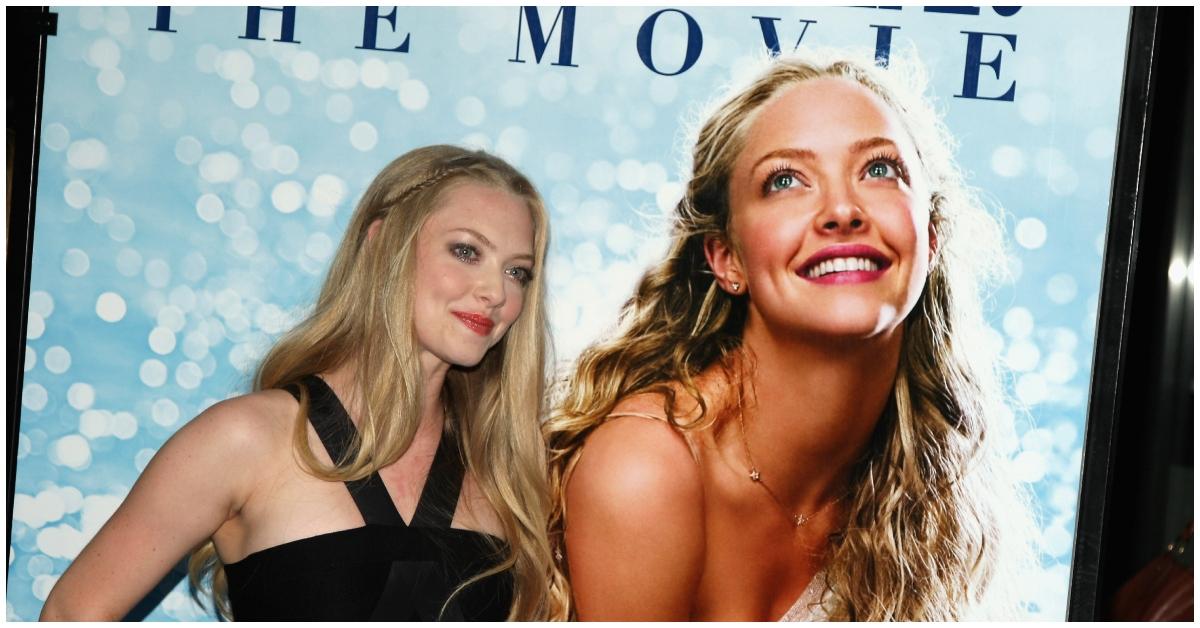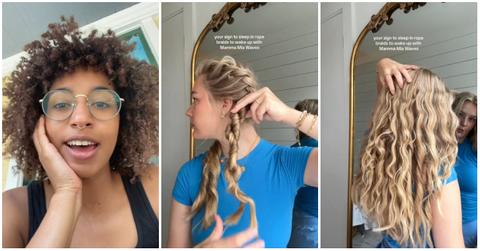Mamma Mia! Here White Women Go Stealing Black Hair Trends Again
We're so brokenhearted to see cultural appropriation is alive and well.
Published July 17 2024, 5:48 p.m. ET
In the '90s, British playwright Catherine Johnson created the musical Mamma Mia! The project paid homage to the Swedish rock band ABBA's musical reign from the 1970s and '80s. The homage soon gained a life of its own, getting traction in London, followed by a 16-year run on Broadway from 1999 to 2015. Soon, movie adaptations followed, with Amanda Seyfried and Meryl Streep starring in Mamma Mia! in 2008 and Mamma Mia! Here We Go Again in 2018.
Mamma Mia!'s legacy has resulted in the show having many fans from all over the world. And you know what they say — imitation is the best form of flattery. But in 2024, those who saw Amanda's character Sophie's flowy curls in both films wanted to achieve the same "Mamma Mia hair." However, those observing the trend — especially Black women — aren't fazed this new case of cultural appropriation on a popular natural haircare trend — the twist out.

White women are calling twist outs "Mamma Mia Hair" now...
The Mamma Mia! hair trend sparked controversy on TikTok. We're not sure exactly when the trend happened or who started it, but once you see these "heatless curls," you'll want to fight everybody involved.
The trend involves white women trying to achieve Amanda's "Mamma Mia! hair" without using a curling iron. To achieve this, the women part their hair down the middle, split it in half, and twist their hair from their scalp to the end. According to multiple users, once the hair is twisted, they leave it twisted overnight or for a few hours. When they wake up, they have flowy tresses. Many users have shared their videos while playing a song from the Mamma Mia! soundtrack.
Black (and white) women have a lot to say about the "Mamma Mia hair" trend.
In almost every Mamma Mia! hair video, the users don't discuss that their "new" method for "heatless curls" came from Black women. For decades, Black women have achieved their curls by flat-twisting their hair to make the curls bouncier and fuller. The style dates back to the rise of the natural hair movement that began in the early 2000s and has been worn by many natural influencers and celebrities alike.
Due to twist-outs not being a new concept, many Black women were offended that a once-banned hairstyle is now a summer phenomenon. However, some, like TikTok user @erinsaidah, knew speaking out about it could cause unnecessary racial backlash from commenters and turned them off.
In addition to Black women pointing out the offensiveness of the Mamma Mia! Hair trend, white women also spoke out about it on their platforms. One user named Taylor @ritualsandrite, received praise online after her "public service announcement" to white girls twisting their hair went viral.
"You should probably stop," the user said in her video. "African American women have been twisting their hair out for centuries. The problem with rebranding is that when it's rebranded and white people do it, it becomes culturally acceptable."
Taylor also demanded the women following the Mamma Mia! Hair trend rename their videos and call what they're doing a twist out instead. As wonderful as that gesture is, we're sure white women will continue stealing from Black women. How can they resist it?
